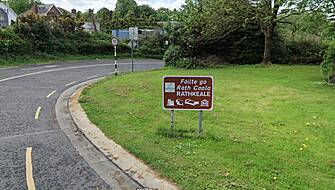The judge who sentenced a man to nine years’ imprisonment for the manslaughter of his employer during a violent robbery failed to take into account the accused’s young age at the time of the offence, his lawyers told the Court of Appeal on Thursday.
Marian Lingurar Jnr was 16 years old when publican John Kenny (56) was badly beaten, tied up and left to die alone on the floor of the ladies’ toilet in his public house, Kenny’s pub in Oughterard, Co Galway, by a gang of men, including Lingurar, on September 25th, 2011.
During the attack, Mr Kenny had sustained severe injuries to his upper body, consistent with blows from a heavy object and with kicks and punches. His hands had been tied behind his back and a jacket wound tightly around his face and head.
His wife Kathleen and the couple’s daughter Gillian discovered his body the following evening.
Lingurar had been working as a doorman at the pub for a week before the fatal attack took place, and had planned to rob Mr Kenny of his takings when he returned to the premises after closing time to let his fellow gang members inside.
Now aged 27, he is appealing the severity of the sentence imposed by Judge Rory McCabe at Galway Circuit Criminal Court in May 2019.
'A crime of common design'
At the Court of Appeal on Thursday, Colman FitzGerald SC, for Lingurar, said the main ground of appeal related to the “manner in which the trial judge dealt with the age of the appellant” at the time of the offending.
The headline sentence had been “too high” and there was “an error in principle”, he continued, given the age and culpability of the appellant on the night in question.
If the judge had been sentencing an adult for a similar crime, the headline sentence would have had to have been “very much higher” than the 10-year one Judge McCabe nominated for his client.
The basis on which the jury was invited to find the appellant guilty related to the fatal assault on Mr Kenny, counsel continued, even though it had never been part of the prosecution’s case that his client had taken part in Mr Kenny’s “restraint or assault”.
“There is no evidence to permit that conclusion to be drawn,” he said.
However, Mr Justice Patrick McCarthy, who was sitting with Court President Mr Justice George Birmingham and Ms Justice Isobel Kennedy, noted that Mr Kenny’s killing had been “a crime of common design” and, in that regard, Lingurar “bears that responsibility” for the events of that night.
In response, Patrick Gageby SC, for the Director of Public Prosecutions, said the robbery had been planned and had been a “gross breach of trust”.
“This was all done for money. Mr Kenny was left dying or dead,” he added.
Referring to the transcript of proceedings from Lingurar’s trial, Mr Gageby added: “It seems that the trial judge did factor in youth and moral culpability when fixing the headline sentence.
“If the appellant had been involved in the mistreatment of Mr Kenny, the headline sentence would have been a lot higher.”
Judgment has been reserved.
Last July, the Court of Appeal refused to allow Lingurar leave to appeal his manslaughter conviction, in a hearing where the dead man’s daughter, Gillian Kenny, had asked the court not to allow the appeal to proceed.
Following the burglary and killing in 2011, Lingurar broke his bail conditions, fled Ireland and returned under a false name, resulting in his trial being delayed until 2019.
A mix-up then resulted in his appeal not being lodged within the required time.
In the judgement, Court President Mr Justice George Birmingham said Ms Kenny had described "in very powerful terms the impact that the killing of their father has had on the Kenny family and how difficult they have found the very lengthy criminal process".
Mr Justice Birmingham said the grounds of appeal that had been lodged had little chance of success. The interests of justice, he said, would be best served by refusing the application to appeal the conviction.







